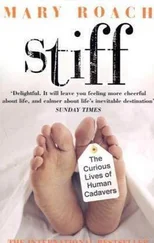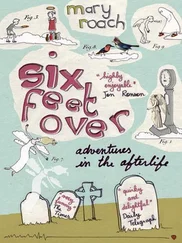Then there’s the fact that Ed is one of those guys who likes to walk down all the aisles when they shop. At a place as vast as Costco, you don’t enter into this lightly. You need good arch support and a map, possibly a donkey and canteen. To get out in under an hour, you’ll need to break into a jog. Given you are about to buy snack foods totaling 350,000,000 calories, jogging’s probably a good idea, but still and all…
“Perfect,” said Ed when I pointed out how long it would take. He’d dropped off film at the Costco one-hour developers. “Go try on some glasses at Costco Optical,” he said when I complained. “Go watch the TVs. Sample a sausage.” Gradually, I succumbed. Now we pretty much live at Costco. It’s working out nicely, as our home is a warehouse for paper towels and mustard and giant flats of beverages.
My fondness for the place continued to blossom until one day the kindly man at Hector’s, my neighborhood office supply store, complained about all the business he was losing to places like Costco and OfficeMax. Some weeks later, while stocking up on office supplies at Costco, I felt a twinge of guilt. It was a small twinge, and somewhat hard to detect what with the giddiness of finding printer cartridges for half the price I was paying at Hector’s, but I was torn.
Then I saw something horrifying. I nudged Ed and pointed to a man cutting up sample-sized bites of string cheese with a pair of scissors. Something about him looked familiar, though perhaps it was just the orange-handled scissors and the latex gloves. “Is that Hector?” I whispered to Ed. I wondered aloud whether all the people who owned the grocery stores and office supply shops driven out of business were now standing around in hairnets, working at Costco. Ed nodded thoughtfully and put a Mega-Bag of Fun-Sized candy bars in the cart, on the grounds that Halloween was just around the corner. (It was March.)
That night, sensing rebellion, Ed sat down with one of our three identical calculators (for those times when three family members need to work out complex math problems simultaneously) and totted up our annual savings due to Costco. On beer alone, it was over $50. I tried to argue that you had to subtract the money spent on food items sitting uneaten for over two years, such as the two-foot-by-one-foot carton of chicken teriyaki strips currently serving as a sort of display platform for ice cubes and Popsicles in our freezer. Ed countered that keeping a large, frozen object in the freezer made it more efficient and cut down on electric bills. There was no fighting it. Costco rules the universe (and is slightly bigger).
My mother had a saying:“Guests are like fish. After three days they begin to stink.” Here’s the thing about my mother, though. She never bought fresh fish. She bought Mrs. Paul’s frozen fish sticks, which she served us every Friday along with Tater Tots, leading me to think that good Catholics ate golden-brown food on Fridays. Here’s the other thing about my mother. She never had guests. Only once in my childhood did someone from her or my father’s family stay overnight at our house. In my father’s case, it was because his family lived in England, and he’d lost touch with them. In my mother’s case, who knows. Possibly it was her cooking.
I’m guessing the fish line must have been something her own mother said.
I wouldn’t know, because I only met my grandmother once. When I was five, we took the train out to Walla Walla to visit my mother’s family for the first and last time. I can’t remember any interaction with Grandma, or even if that was what we called her. I remember that Uncle Al had a farm with a hayloft to play in, and ripe strawberries we could pick and eat until our bellies were bursting.
I know Uncle George had a red-haired daughter named Cacky, whom I adored, and that Aunt Louise scolded my brother and me for winding up the chains on the swing set and spinning ourselves dizzy. And that’s it: the sum total of my memories of my parents’ relatives. To this day, my family in Washington are strangers to me.
My husband’s mother also has a saying: “We love you. When are we going to see you again?” Ed’s family—his parents and his sister and her husband and little girl—come out to stay with us, or us with them, three or more times a year. When they come to town, they all pile into our home, and when we go to Florida, we all pile into theirs. Neither place has a guest room, but both have sofas and floors, and that’s enough. The first time we came to visit, Ed’s parents insisted on giving us their bed. His dad slept on the couch and his mom took the love seat. We thought the love seat was a pullout sofa bed, but in the morning we found her with her legs hanging over the arm. If anything could stink after three days, you’d think that would, but as always, Jeanne couldn’t bear to see us go.
Of course, I know what my mother meant. For the first three days of a visit, you are caught up in the joy and novelty of seeing one another. You’re busy catching up. It doesn’t bother you that you have no time to yourself, that you have to wait to use the shower and have to drink coffee that’s not made the way you like it. From day four onward, there’s a subtle shift. You’re running out of news to talk over and outings to pass the time and meals that everyone can happily eat. Patience begins to fray. By day six, something as trivial as a coffee table water ring can seem like grounds for a NATO tribunal. You begin to view your guests through the magnifying glasses of the put-upon host. A TV set turned four decibels higher than you like registers as “blaring.” Making a 13-cent long-distance call is perceived as “running up my phone bill!”
Ed’s family often stays six or seven days. By the last day, I admit I’m ready to have my home back to normal, to get dressed in the room where my clothes live. Six rooms aren’t enough for five guests, but I blame the apartment for my feelings, not the guests. I don’t want them to go after three days, I just want the building to get larger.
I’ve come to love Ed’s relatives. I think of them as family in a way that I never thought of my own relatives in Walla Walla—that collection of names and faces on Christmas cards. And I couldn’t have these feelings about Ed’s family if they didn’t come visit as often as they do, or if they stayed in a hotel and dropped by for meals. Family are people who live together—if only for a week at a time. They’re people who drop towels on your bathroom floor, put your cups and glasses back in the wrong place and complain about your weather. You do it to them, they do it to you, and none of you would have it any other way.
On any given nightfor the 14 or so months of the year corresponding to baseball season, our TV is likely to be tuned to a sports channel. In order to maintain some semblance of personal contact with my husband, Ed, during these months, I often sit beside him on the couch with a book. I don’t mind the chatter of the sportscasters, for my brain processes sports talk in the same way it processes paid political announcements and the cell-phone conversations of strangers.
A man in a navy blazer will say, “No atta-babies in that at-bat!” and his companion will chime in with, “It was right there, in the whack-me zone!” and it’s as though they’re not there.
Sometimes I find myself staring at the game anyway. I watch sports the way a dog will watch TV: I’m attracted by the motion and color, but no actual comprehension is taking place. Ed forgets that this is the case. He’ll see me looking at the screen and assume I’m following the game and expect me to keep track of what happens while he goes to the kitchen for a refreshing beverage. Sometimes I’m able to bluff my way through it (“He had it right there in the whack-me zone, honey!”), but more often I am forced to confess that I have not grasped the significance of anything I have seen.
Читать дальше












